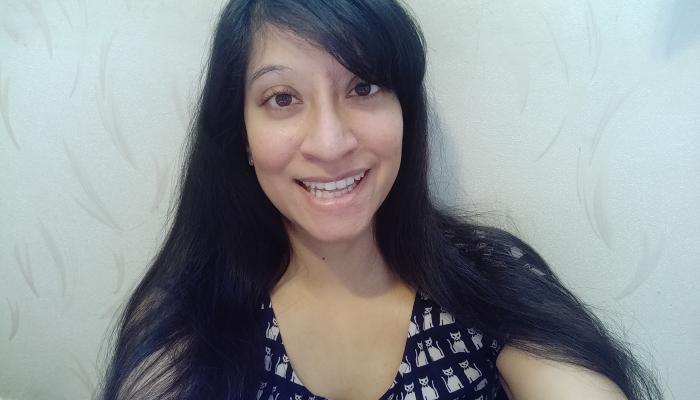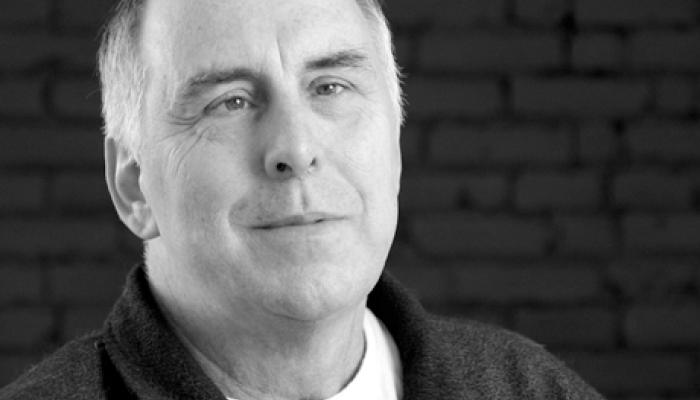Sarah Marylou Brideau
Sarah Marylou Brideau was born in the Acadian Peninsula of New Brunswick the year that "Billy Jean" was at the top of the music charts. In 2001, she published her first poems in issue #30 of Éloizes, and later two poetry books with Éditions Perce-Neige : Romanichelle (2002) et Rues étrangères (2005). In 2013, she completed a Masters in French Language & Literature at McGill University; her thesis was a study of Acadian poet Gérald Leblanc and micro-cosmopolitanism. That same year, her third book of poetry, Cœurs nomades, was published with éditions Prise de parole (Sudbury). Sarah lives in the countryside at the bottom of the great Petitcodiac River in southeastern New Brunswick.
Doyali Islam
Canadian poet DOYALI ISLAM is the author of the 2020 Griffin Poetry Prize shortlisted heft (McClelland & Stewart, 2019), a book that was also honoured by the Province of Ontario as a finalist for the 2020 Trillium Book Award for Poetry and by The League of Canadian Poets as a finalist for the 2020 Pat Lowther Memorial Award.
Doyali has participated in CBC Books' Why I Write video-interview series, during which she said, “My advice would be to read and write poetry not just from mind intelligence, but from body intelligence. You will know that your language is working when you read or recite it back to yourself and you feel it working on you viscerally and emotionally. So render your technique in a rigorous way – but inform it with your heart, your spirit, and empathetic imagination.”
Doyali has discussed the value of silence on CBC Radio's The Sunday Edition; language, form, beauty, and empathy with Anne Michaels in CV2; and the relationship between poetry and the body on CBC Radio's The Next Chapter. Doyali has also been interviewed about heft through Oxford Brookes Poetry Centre Podcast.
Speaking about her poetics in an Adroit Journal conversation with Forrest Gander, Doyali said, “I guess I would consider the necessity to write about longing, pain, and despair a poetics of survival. I want to survive. I want you to survive. I want my readers-listeners to survive. I want certain kinds of language to survive. I want certain versions of history to survive. I want questions to survive.”
Of Bangladeshi and Arab ancestry, Doyali lives in Canada on the traditional territory of many nations including the Mississaugas of the Credit, the Anishnabeg, the Chippewa, the Haudenosaunee, and the Wendat peoples.
Sonnet L'Abbé
Born in Toronto, Ontario, Sonnet L’Abbé grew up in Calgary, rural southern Manitoba, and Kitchener-Waterloo. They are the author of A Strange Relief, Killarnoe, and Sonnet’s Shakespeare. Their styles range from lyric to concrete and experimental, and their themes include racial, national and settler identity, relationship to land, surviving sexual assault, plant knowledge, physiology of music and love. Their influences include M. NourbeSe Phillip, Anne Michaels, Christian Bök, Claudia Rankine, Wislawa Szymborska and Seamus Heaney. They were the editor of Best Canadian Poetry 2014, and their chapbook, Anima Canadensis, won the 2017 bp Nichol Chapbook Award. L’Abbé now lives in Nanaimo BC and is a professor at Vancouver Island University.
Rachel McCrum
Rachel McCrum is a poet, performer, and workshop facilitator. Originally from Northern Ireland, she lived in Edinburgh, Scotland between 2010 and 2016. She was the first BBC Scotland Poet-in-Residence, and Broad of the cult spoken word cabaret Rally & Broad. She has taught and performed in Greece, South Africa, Haiti, and Canada, and toured her first book, The First Blast To Awaken Women Degenerate (Stewed Rhubarb Press), across Ireland, Scotland, and England in 2017. In Montreal, she is the director of the bilingual cabaret Les Cabarets Bâtards. Her poetry has been descibed as “irreverant, heart-wrenching, rallying” ... “soulful and yet defiant.” Her poetry makes its own stage, fiercely oral and yet also vulnerable, wrestling with questions of voice, displacement, movement, politics, feminism, family, and home.
Paul Savoie
Born in Manitoba, francophone poet Paul Savoie (b. 1946) has published works in various genres, including short stories, and translations of poetry into both English and French; he has also composed music. A bilingual writer and proponent of linguistic diversity, he established his talent with his first collection of poetry. His work is personal, and his gaze is straightforward, persistent, and vigilant. His poems foreground the search for love and the place of the individual and the imaginary. Advocating the importance of the individual, this poet of solitude proclaims the universailty of poetry. Savoie received the Trillium Book Award in 2007.
Chloé Savoie-Bernard
A search for one’s identity and those of others mark the poetic journey of Quebec poet Chloé Savoie-Bernard. Her poems are at once hard, lucid, and vulnerable, where meaning is created in the empty spaces. They dance to the rhythm of a lyricism that is made and undone. Her images fly in the face of her readers, which at first may seem contradictory, but reveal a rigorous look at the notion of being feminine today and in our era. Savoie-Bernard writes from her perspective, and particularly through her own experiences, but she stresses that writing from her experiences is not the same as writing about oneself.
Steven Ross Smith
Steven Ross Smith is the Banff Poet Laureate for 2018-21. He is a poet, fiction writer, and arts journalist, currently living in Saskatoon. His latest poetry books are Emanations: Fluttertongue 6, published by Book*hug in 2015, and the collaborative chapbook "Table for Four" from JackPIne Press in 2020. He was awarded the Saskatchewan Book of the Year Award for his poetry book fluttertongue 3: disarray in 2005, and won the bpNichol Chapbook Award for Pliny’s Knickers in 2006. His work appears in journals, recordings, and videos in Canada, USA, and abroad. Smith was Director of Literary Arts at the Banff Centre (2008–2014) and Director of Sage Hill Writing Experience (1990–2008). He is influenced by Dada and by today's most innovative poets. His writing is published in Grain and CV2. Smith’s poetic work is known for its innovative challenges to poetic form, notably in the seven-book long poem sequence Fluttertongue, and in his performances of sound poetry. His work can be seen on his website at fluttertongue.ca, at stevenrosssmith.com, and on YouTube and info can be found on Wikipedia.
Jason Stefanik
Jason Stefanik is a second-generation adoptee raised in Manitoba’s Interlake. He currently resides in Winnipeg’s North End. He is a founding member of neither/neither, a creative collective at the Edge Gallery in Winnipeg’s inner city, and also facilitated a small poetry workshop for inmates at Stony Mountain Penitentiary. His poems have appeared in tart, Misunderstandings Magazine, Grain, Nashwaak Review, Arc, and Prairie Fire. He is the recipient of the 2015 Banff Centre Bliss Carman Poetry Award and his book of poetry, Night Became Years, was shortlisted for the 2018 Governor General's Literary Award. He's currently writing a sequence of poems on cryptography and often asks himself, "What would Auden do?"
Sarah Tolmie
Sarah Tolmie has loved early English since she was a teenager because of its weirdness. She did degrees in medieval studies at Toronto and Cambridge. She always wrote poetry but began to write alternate history novels — Ursula Le Guin was a mentor — in her 30s after her kids were born. Now she does both, and teaches literature at University of Waterloo. McGill-Queen’s University Press has published three of her poetry collections: Trio (a long book of sonnets that tells a love story) in 2015, The Art of Dying in 2018 (nominated for the Griffin Prize) and Check in October, 2020.








